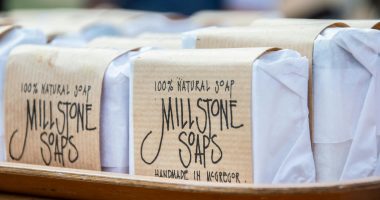A Florida court has ordered Chiquita Brands International to pay $38m to the families of eight Colombian men murdered by a paramilitary death squad, after the US banana giant was shown to have financed the terrorist organisation from 1997 to 2004.
The landmark ruling late on Monday came after 17 years of legal efforts and is the first time that the fruit multinational has paid out compensation to Colombian victims, opening the way for thousands of others to seek restitution.
It also marks the first time a major US corporation has been held liable for such rights abuses in another country and could lead to a series of similar lawsuits involving rights violations across the world.
“This verdict sends a powerful message to corporations everywhere: profiting from human rights abuses will not go unpunished,” said Marco Simons at EarthRights, one of the law firms representing the families of those killed by the paramilitaries.
Chiquita pleaded guilty in 2007 to funding “a specially designated global terrorist” for secretly paying the United Self-Defence Forces of Colombia (AUC) $1.7m over seven years at the height of Colombia’s brutal conflict, but had never before been ordered to pay compensation to victims.
The rightwing AUC sprang up in the 1980s to protect landowners from leftist rebels such as the Revolutionary Armed Forces of Colombia (Farc), but went on to become the worst perpetrators of human rights violations in the south American nation – and one of the country’s largest drug-traffickers.
Until it disarmed as part of a 2004 peace process, the AUC was responsible for most of the civilian lives lost in Colombia’s brutal, six-decade-long conflict, which left 450,000 people dead and millions displaced.
Chiquita has argued that it was extorted by the AUC and that the payments were necessary to protect its employees from armed Marxists.
Court documents show that Chiquita continued paying the AUC after it had been designated an international terrorist organisation in the US in 2001 and that executives saw the payment as the “cost of doing business in Colombia”.
New evidence presented to the Florida courts also showed that Chiquita allowed the AUC to use its ports to import automatic rifles and its banana boats to smuggle cocaine across the seas, human rights lawyers at International Rights Advocates (IRAdvocates) said.
The civil cases were brought by the family members of trade unionists, banana workers and activists who were tortured, killed and disappeared by paramilitaries as they sought to control the vast banana-producing regions of Colombia.
Some victims were forcibly disappeared by the AUC merely for being suspected of sympathising with the rebels, the rights firms said.
Among the victims who presented evidence was the widow of a union leader who was tortured, decapitated and dismembered by the AUC in 1997.
“It’s a triumph of a process that has been going on for almost 17 years, for all of us who have suffered so much during these years,” said another of the victims, who asked not to be named. “We’re not in this process because we want to be. It was Chiquita, with its actions, that dragged us into it. We have a responsibility to our families, and we must fight for them.”
The case was a “bellwether trial”, said Terrence Collingsworth, executive director of IRAdvocates, one of the legal firms representing the victims.
If the other pending cases are not resolved by negotiation, a second bellwether trial is scheduled for 14 July.
“These brave women and the other Plaintiffs in this case have demonstrated that corporate criminals like Chiquita can be held accountable through courage and perseverance. Hopefully, this verdict will inspire others to fight for corporate accountability,” Collingsworth said in a statement. “In my experience, corporations operating in the global economy will do whatever they can get away with. We just showed them that there are real consequences for corporate outlaws.”
A spokesperson for Chiquita said the company would appeal the ruling, adding in a statement: “The situation in Colombia was tragic for so many, including those directly affected by the violence there, and our thoughts remain with them and their families. However, that does not change our belief that there is no legal basis for these claims. While we are disappointed by the decision, we remain confident that our legal position will ultimately prevail.”
Read More: World News | Entertainment News | Celeb News
Guardian
